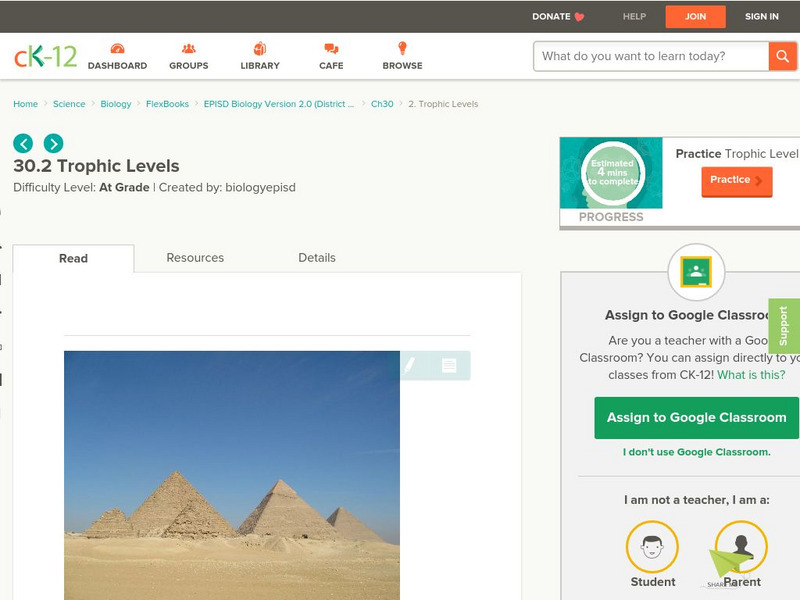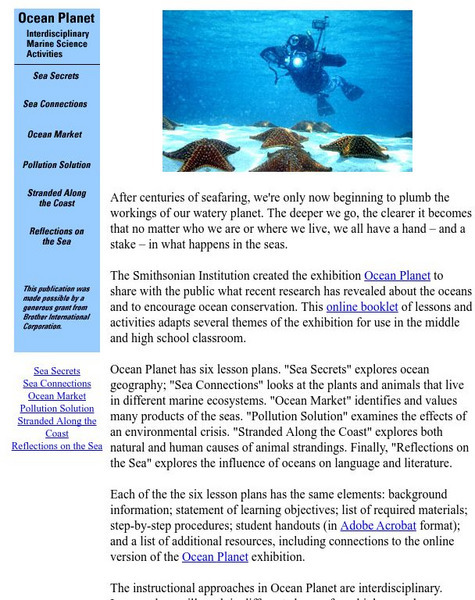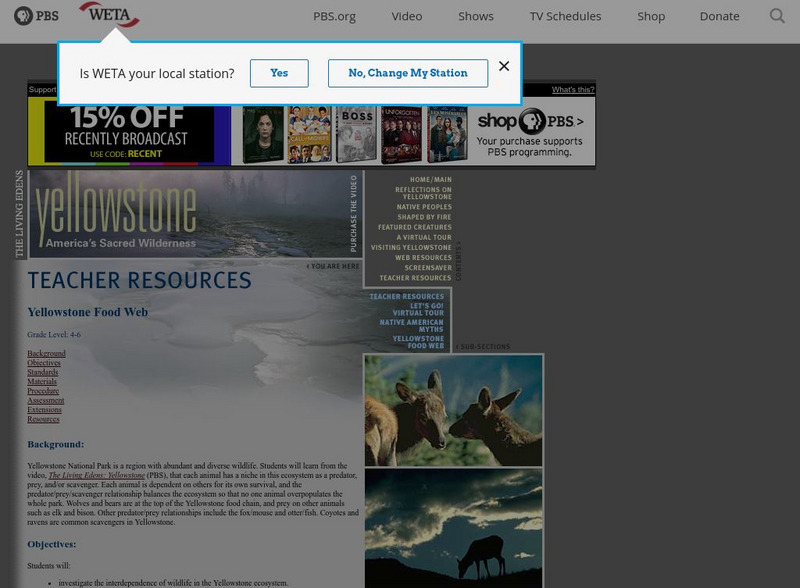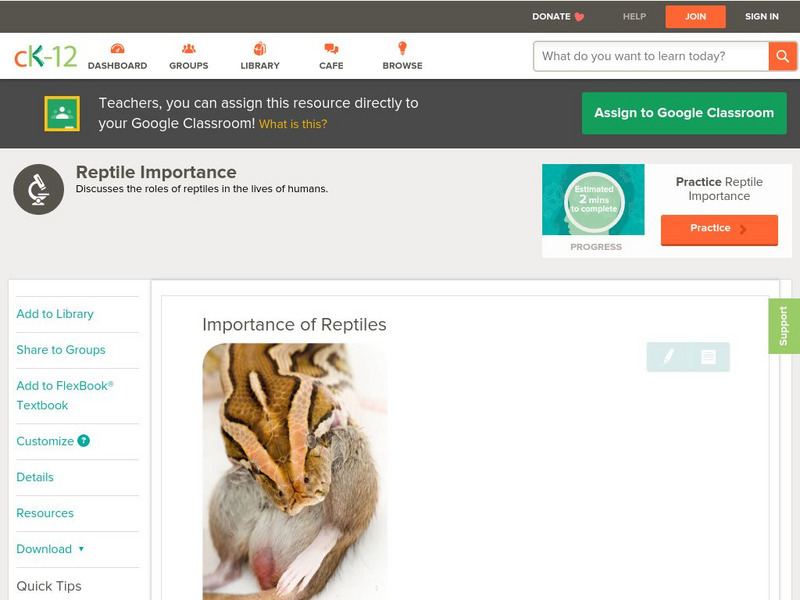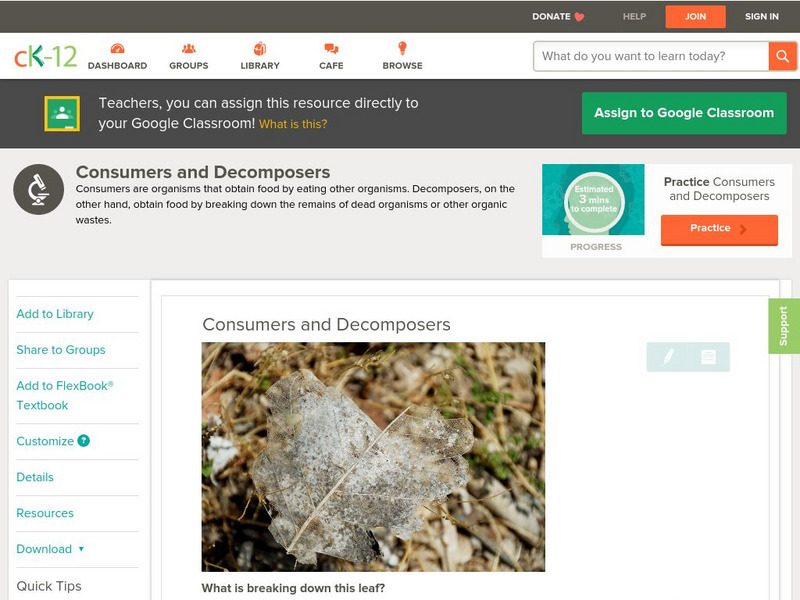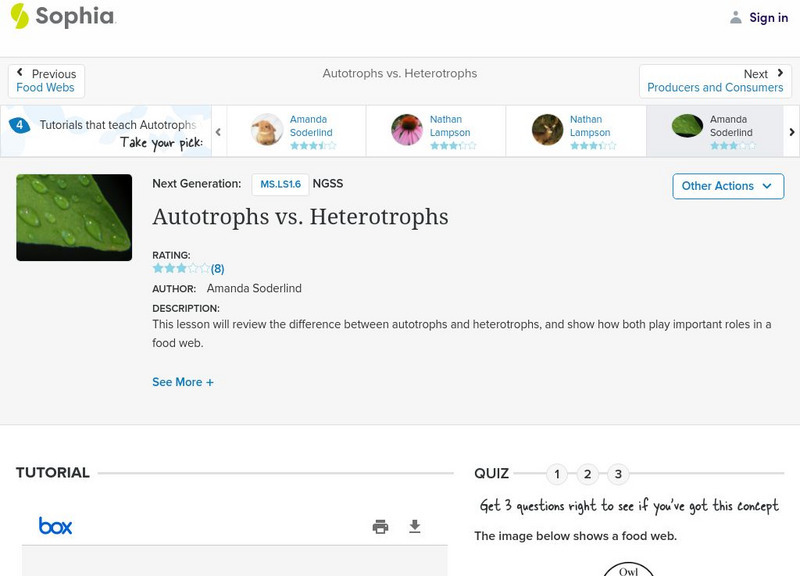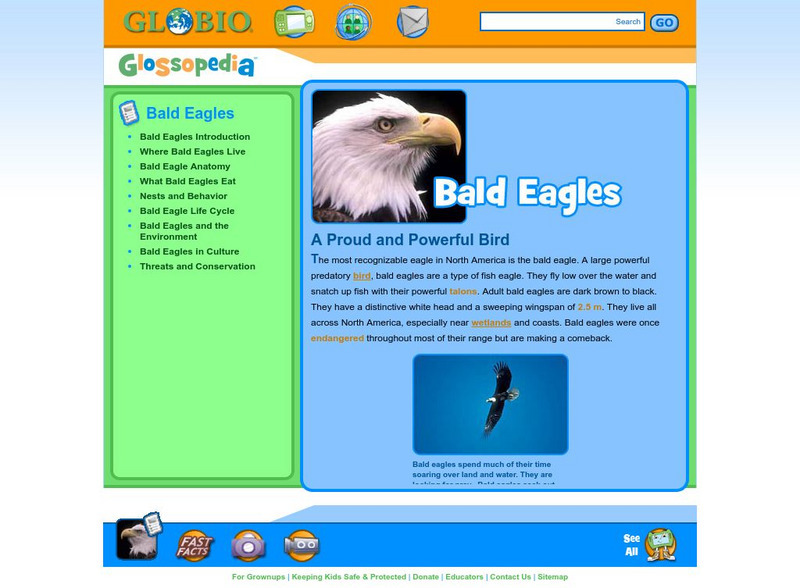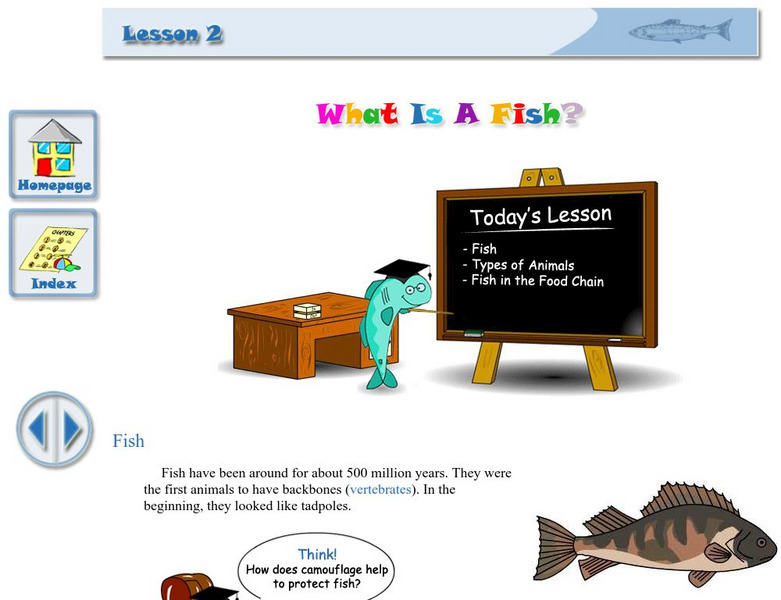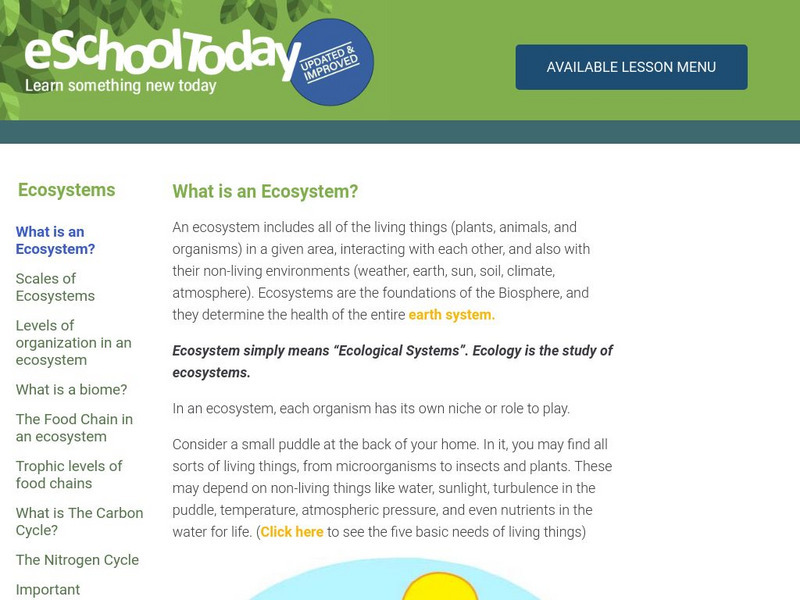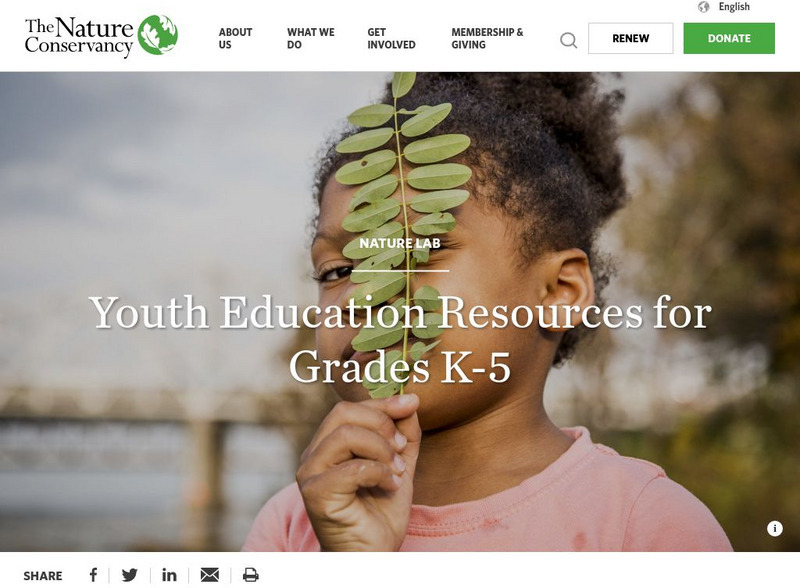Hi, what do you want to do?
Alabama Learning Exchange
Alex: Protect Our Planet Piece by Piece
In this lesson from "The Friends of Auntie Litter", (www.auntielitter.org), food webs and their significance will be explored. This lesson is one from the "Take Pride Statewide" series. *Lesson provided by Julie Danley and Pam Walston.
Utah STEM Foundation
Utah Stem Action Center: Great Salt Lake Ecosystem
This lesson plan provides an eight-day flow of educational activities in which learners use the Great Salt Lake ecosystem to explore food webs and how changes in living and nonliving factors affect different populations.
CK-12 Foundation
Ck 12: Episd: Trophic Levels
[Free Registration/Login may be required to access all resource tools.] Understand what trophic levels are and identify producers and consumers in a food web.
Smithsonian Institution
Smithsonian Environmental Research Center: Forces of Change: Weaving the Web
The students will become the food web in this fun interactive classroom activity. Detailed instructions, background information, guiding questions, and activity worksheets are provided.
OpenSciEd
Open Sci Ed: 7.4 Matter Cycling & Photosynthesis
This unit on matter cycling and photosynthesis has students investigating the idea that all food comes from plants.
Annenberg Foundation
Annenberg Learner: The Habitable Planet: Ecology Lab
Create the parameters of your own ecosystem by choosing which producers and consumers live there. Visualize how the food web operates and species populations change. This simulator mimics the food web within a typical ecosystem and gives...
Other
Digital Library for Earth System Education: Teaching Box: Seasonal Upwelling
A suite of lessons focusing on the process of upwelling. Inquiry-based exploration of seasonal upwelling includes marine food webs, food production in the ocean, wind-driven ocean currents, and seasonal changes in biotic and abiotic...
Museums Victoria
Museum Victoria: Bugs
Students learn what insects are, how they live, how they find food, how they defend themselves, and how they affect humans. Organized into several articles accompanied by high-quality photos and video, this online exhibit provides...
Smithsonian Institution
Smithsonian Education: Ocean Planet
A series of lesson plans designed to be used with the Smithsonian Ocean Planet exhibit (available online). Lesson topics include marine ecosystems, pollution of ocean water, animal strandings, and literature.
CK-12 Foundation
Ck 12: Earth Science: Flow of Energy in Ecosystems
[Free Registration/Login may be required to access all resource tools.] Describes how energy is transferred from one organism to another.
SMART Technologies
Smart: Energy Flow in an Ecosystem
Students learn about Abiotic and Biotic Factors and how they affect the ecosystem in which an animal might live in.
PBS
Pbs Teachers:yellowstone: Yellowstone Food Web
Investigate the interdependence of wildlife in the Yellowstone ecosystem and draw an ecosystem showing the interdependence of life forms.
CK-12 Foundation
Ck 12: Life Science: Importance of Reptiles
[Free Registration/Login may be required to access all resource tools.] Reptiles play an important role in the life of humans. In addition to playing an important role in many food chains, which keep the populations of small animals...
Thinkport Education
Thinkport: Designing a Healthier, Happier Meal: Children's Meal Data
See a chart that contains a sampling of children's meals available in 2013 at 14 national fast food chains.
CK-12 Foundation
Ck 12: Life Science: Consumers and Decomposers
[Free Registration/Login may be required to access all resource tools.] Producers make their own food through photosynthesis. But many organisms are not producers and cannot make their own food, but must get their energy from other...
Sophia Learning
Sophia: Autotrophs vs. Heterotrophs: Lesson 2
This lesson will review the difference between autotrophs and heterotrophs, and show how both play important roles in a food web. It is 2 of 4 in the series titled "Autotrophs vs. Heterotrophs."
PBS
Pbs: Nature: The Fascinating World of Jellies
Learn about the mysterious jellyfish blooms that have occurred in the world's oceans. Because the resulting alteration to the marine food web has had devastating effects, researchers grow and study jellyfish at the Monterey aquarium....
PBS
Pbs Teachers: Predator Protector Game Lesson
Describe the habitat, food web and ecosystem of shark species. Identify threats to sharks and explore how top predators help to maintain the balance of nature within ecosystems. This lesson plan also contains an interactive game.
FT Exploring
Ft Exploring: The Flow of Energy Through Plants and Animals
Explore the different ecological roles of organisms in the ecosystem, and find out how the energy flows through them.
Globio
Glossopedia: Bald Eagles
The bald eagle is a predatory bird that lives in North America. This article discusses bald eagle hunting habits, habitat, life cycle, diet, anatomy and mating habits. The concept of the food chain is introduced and is used to explain...
TeachEngineering
Teach Engineering: Biodomes
Students explore the biosphere's environments and ecosystems, learning along the way about the plants, animals, resources and natural cycles of our planet. Over the course of lessons 2-6, students use their growing understanding of...
Inland Fisheries Ireland
Something Fishy: What Is a Fish?
Something fishy site invites users to discover more about fish and fish types by learning how fish use their gills to breathe as well as where they fit in the food chain.
eSchool Today
E School Today: What Is an Ecosystem?
Learn about all the different levels of ecosystems, from the living things under a rock, up to a rainforest biome. Explains the levels of organization within an ecosystem, the different types of biomes, food chains and trophic levels,...
Nature Conservancy
The Nature Conservancy: Gardens Activity Guide: Soil
In this lesson plan students conduct a soil analysis to understand soil types and explore the relationship between the garden and healthy, fertile soil. Soil is a natural resource that is crucial to life on Earth and when managed...
Other popular searches
- Desert Food Chain
- Animal Food Chain
- Deciduous Forest Food Chains
- Pond Food Chain
- Ocean Food Chain
- Frog Food Chain
- Food Chains in Biomes
- Arctic Food Chain
- Desert Animal Food Chain
- Ocean Animals Food Chain
- Coral Reef Food Chain
- Marine Science Food Chain







